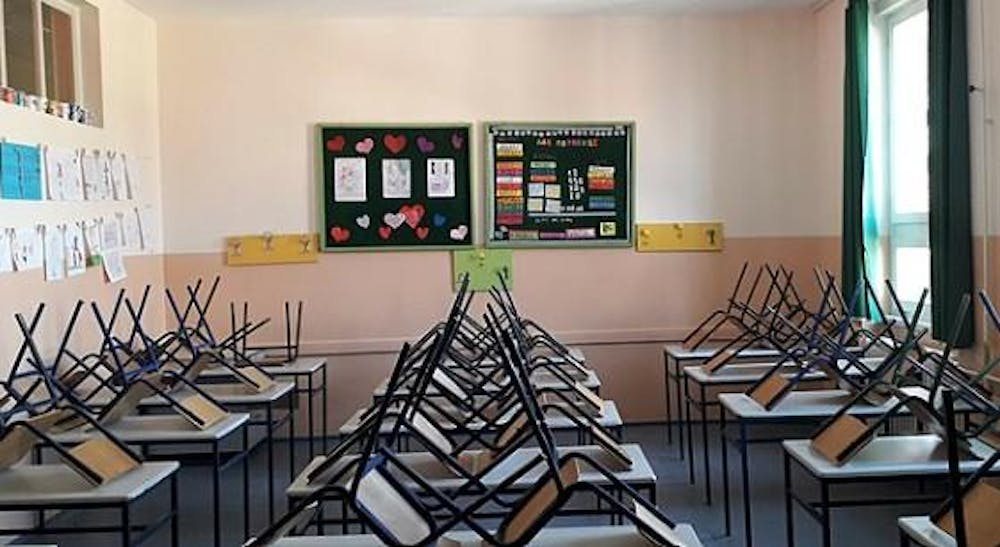Due to national threats to the U.S. Department of Education under the Trump administration, Georgia’s public education system is in crisis. As of December 2024, the state has experienced a shortage of over 5,300 public school teachers, a deep-cutting issue to which lawmakers have only offered superficial solutions. With each passing year, it seems that the Georgia legislature becomes increasingly emboldened by national discourse on education, particularly around ensuring equality in learning opportunities and what is considered to be a palatable curriculum for children, directly impeding the jobs, quality of life and opportunities for Georgia’s students and teachers.
Georgia’s state politics offer an example of the dangerous trickle-down effect of an extremist shift at the national level toward the devaluation of educators and resource allocation. While the unyielding eye of the public often tempers federal extremism, state-level politics flicker at the edge of the media’s spotlight, allowing incredibly problematic and influential legislation to fly under the radar.
While legislators have introduced new educational bills in response to this deficit, many are lackluster and fail to address the crisis meaningfully. For example, Senate Bill 150 would allow former teachers with 25 years of service to return to the classroom after they retire. While this may seem like a step toward addressing the teacher shortage, it is merely a Band-Aid on a much deeper wound as it fails to address the root causes of the crisis, including low salaries, unsupportive and unsympathetic working conditions and increasing political pressure on educators. Georgia legislators passed a voucher bill to allow parents to send their children to private schools. Instead of resolving the issues in public education, this bill aims to privatize it, fostering an environment of exclusivity and diminishing educational opportunities for lower-class Georgians. Such solutions are tangential to the root of the education system’s issues: a lack of investment in educators. To truly support teachers, lawmakers must advocate for higher wages, stronger mental health resources for both students and teachers and protections against ideological persecution in the classroom.
Shifts in education legislation are readily apparent in the legislature’s attacks on diversity, equity and inclusion (DEI). Although Senate Bill 120, which would have prohibited programs or activities that promote DEI, did not make it through the Georgia Congress before Crossover Day on March 6 — the day a bill must pass out of its original legislative chamber to be up for consideration during the remainder of the legislative session — lawmakers repackaged many of its provisions into House Bill 127, which originally intended to allow teachers to roll over five paid days off across school years. The bill, which passed through the Georgia Senate on April 2 on a party-line 33-21 vote, would have banned any policy or procedure referencing or involving DEI in Georgia public schools and colleges. The House blocked the bill with a vote of 22-33, with opponents arguing that the state maintained a responsibility to establish racial equity in the face of historic discrimination. These attempts to curb recognition of diversity within school systems represent an ominous manifestation of a larger trend in public education.
According to State Sen. Marty Harbin (R-Ga.), these bills would allow “students and faculty [to be] engaged in open dialect without fear of reprisal.” In reality, however, they only open the door to ideological policing and prevent marginalized groups from accessing the equality in education they deserve.
Georgia’s current public education system also threatens students with disabilities due to the uncertainty surrounding federal funding under the Individuals with Disabilities Education Act (IDEA), a program previously supported by the U.S. Department of Education. In fiscal year 2025, The Georgia State Department of Education allocated more than $380 million under the act to help schools provide special education services, trained staff and accommodations like speech therapy, counseling and individualized education programs. However, nearly all public educational funding from the federal government is now in limbo. Without IDEA funding, schools will have to make budget cuts, and students with disabilities will bear the brunt. Many could lose access to services that preserve equal educational experiences while others may be placed in under-resourced classrooms or denied necessary accommodations. Education is a fundamental right, and dismantling the systems that make it accessible threatens the future of some of Georgia’s most vulnerable students.
There are several ways in which Emory students can engage in defense of education at all levels. For instance, organizations like Emory Reads foster mentor relationships between Emory student volunteers and students in low-income Atlanta public schools, offering individualized academic and personal support to students. Beyond Emory, grassroots organizations like the Georgia Coalition for Education Justice and Georgia Equality also work to improve education and equity in Georgia as lawmakers on all levels continuously target teachers and students.
Although we are college students and many of us are not Georgia natives, it is essential that we reach beyond the marble walls of our campus and actively engage with state politics. Our time in the South, however temporary, means more than just sunny weather and barbecue. It includes a responsibility to exercise our political voice in defense of Georgia educators and students and to push back against legislation that threatens the quality of education. As Emory students, we use an Atlanta area code and are a part of this city — it's time we act like it.
The above editorial represents the majority opinion of The Emory Wheel’s Editorial Board. The Editorial Board is composed of Editorial Board Editor Carly Aikens, Arts & Life Editor Hunter Buchheit, Allie Guo, Carson Kindred, Mira Krichavsky, Eliana Liporace, Niki Rajani, Josh Rosenblut, Ilka Tona and Crystal Zhang.




![IMG_0064[31].jpeg](https://snworksceo.imgix.net/whl/bd1509fc-0fff-41c3-8a17-14169776d877.sized-1000x1000.jpg?ar=16%3A9&w=500&dpr=2&fit=crop&crop=faces)

